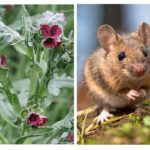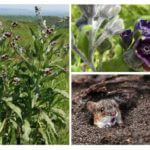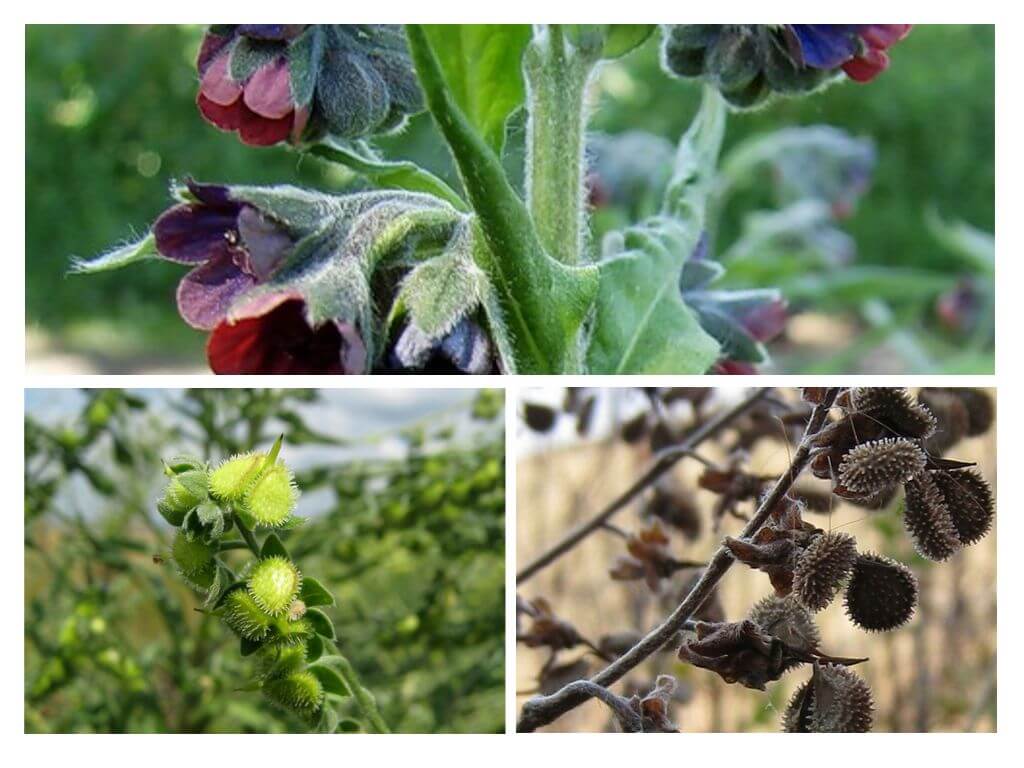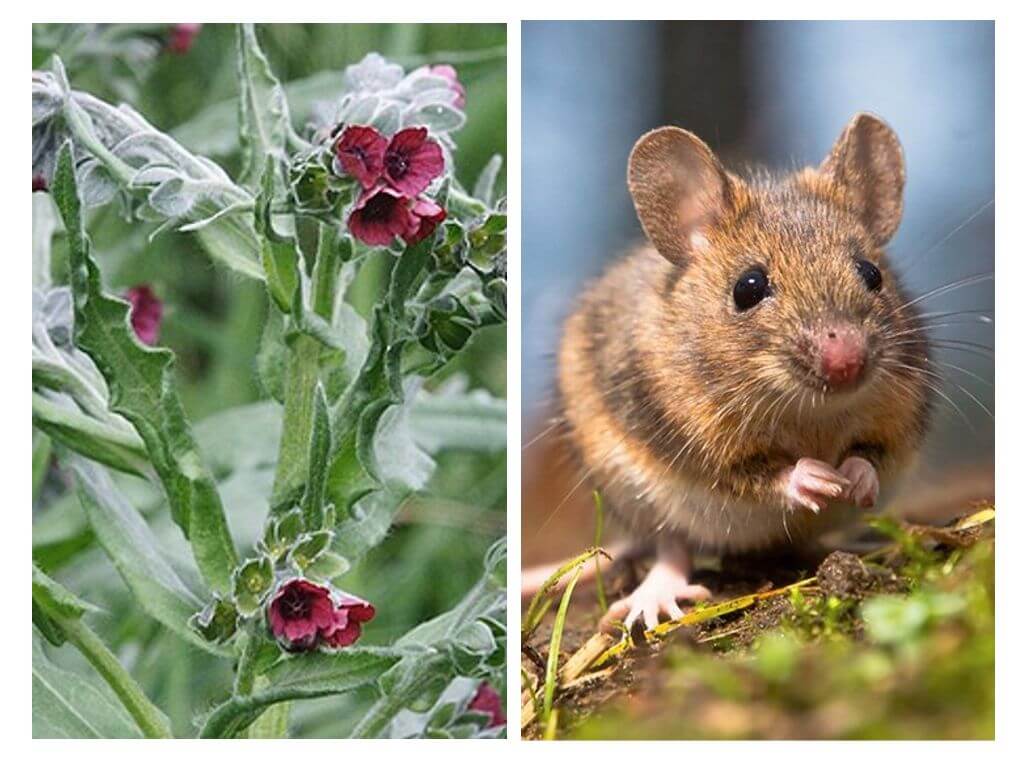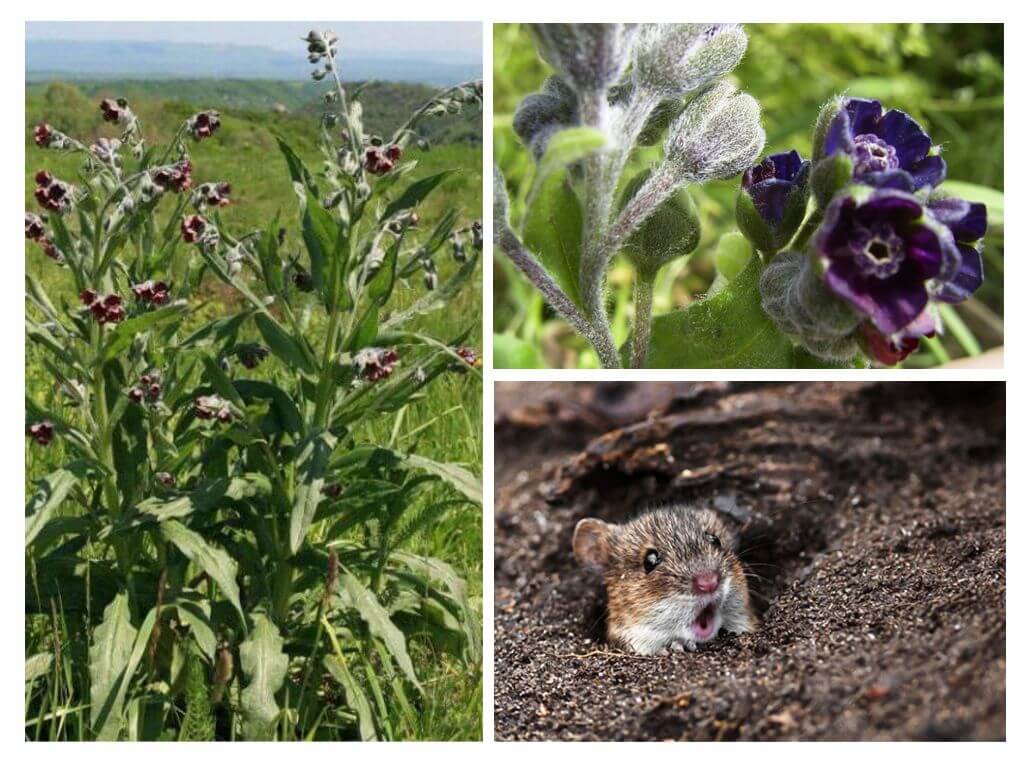Plant black root from mice
- Chernokoreny medicinal from mice
- Grass from rodents
- Pest control
Amateur gardeners and garden owners work in areas from early spring to late autumn to grow and harvest crops that will feed them all winter. But various pests and rodents are happy to eat the collected vegetables and fruits. Goes and trees. Hares and mice love to nibble on apple bark and other trees. There are many chemical agents that successfully cope with this problem, but do not want to damage the soil in their area.Then come to the rescue grass from miceable to fight pests. One of which is the black root medicinal mouse.
Appearance
The Latin name is Cynoglossum, which translates as “dog language” (Greek). Treats perennial plants, up to one meter high. If you look at the medicinal black root in the photo, you can immediately understand why this savior of gardens and gardens has such a strange name. The upper leaves are short, go straight from the stem, and the lower, rough and long (up to 22 cm) look like a dog's tongue. The stem is mostly solitary; the upper part of the plant has dense foliage covered with hairs.
The medicinal root root blooms in late spring, early summer with red or purple flowers, popularly called “red elderberry”. Ripened fruits are smooth and shiny, consist of 4 nuts, covered with spikes. These sharp processes, cling to the fur of rodents. Forest mice and voles can not get rid of them, which is very annoying animal. The root is straight, brown in color, small in diameter (up to 30 mm). Seeds appear on the plant at the end of the summer and spread on their own.
Interesting!
During the growth period, the Black Root has a unpleasant mouse odor. When dry, it smells of nothing, but mice and rats, having a keen sense of smell, continue to feel it. Scientists claim that this herb acts on rodents in the same way as curare's poison on humans.
Where grows
Drug chernokoren unpretentious, it can be seen in the steppe Central Asia, in the Caucasus, in the European part of the country and beyond the Ural mountains. It grows near railway tracks, along roads, in ravines, on fields and in vegetable gardens. Sometimes it is found on stony and calcareous soil. Fertile soil is not needed for it.
How to use
The application to this plant crop saver has been found by our ancestors. They began to use the plant black root from mice. It was noted that where this grass grows, rodents do not survive. For rodent control It began to grow in the gardens. The people of this miracle has many names that reflect the range of its actions: "rat", "cat soap", "worm-grass", "rabid", "blackness".
Important!
All parts of the medicinal chernokornya are very poisonous, so use it carefully.
You need to be careful when mowing the grass that goes to feed the cattle. If a black root grows on the territory, then, falling into the herbal mixture in a certain concentration, it can cause poisoning of the animal.
To fight with mice, all parts of freshly picked or dry medicinal moss are used. They make powder from it or use only the root - it works equally well in any form.
Cut chernokoren medicinal in the fall, preferably three years. To protect against mice, the lower leaves, stalks with seeds are placed in a cellar where vegetables and fruits are stored. The sharp smell of the plant deters the mice, and they leave their nests. The seed of the black root, hung in bags at the corners of the shed or cellar, is also effective for rodents.
The root, placed in the crevices of the floor or other places where the appearance of mice is noticed, scares away uninvited guests and prevents them from settling on this site for a long time. For a more significant result, the poisoned food and the crushed root part of the plant are mixed, the sap of which depresses the rodent nervous system.
Garden roots will also reliably protect mice fromif in the spring it is planted on a plot or parts of a dried root are laid on the ground around fruit trees. By hanging a part of a dry plant with spines on the trunk above the level of snowfall, you can reliably protect yourself from mice. Growing black roots does not require any care and attention. It grows like a weed, you only need to control its growth and in time to remove the extra shoots.
Beekeepers also have problems with mice. They come and settle right in the hives, eating honey and other bee products. To combat this invasion, poisonous medicinal black root is laid out around the hives. Flowers attract bees, and the spines prevent mice from reaching the houses. In the same way protect and greenhouses, laying out the grass around the room.
If you prepare a decoction of black root, you can handle not only the appearance of mice, but also protect plants from insect pests. Alcoholic tincture of the root is sprayed on the walls and baseboards in the apartment building, as well as the sheds and cellars, so that the smell of the poisonous plant prevents rodents from arranging their nests.
Reviews
Many people are interested in whether a black cone helps in the fight against rodents.The answer to this question can be obtained on the pages of the Internet, where owners of private farms and private real estate leave comments and feedback. Here are some of them.
Chernokoreni really helps! I was convinced of this personally. During the winter period, the mouse almost completely ate lilies, onions-batun. Having found information on the Internet, I decided get rid of mice in the country in this way. Narwhal grass, dried and laid it in the fall in the necessary places. In the end - everything was fine, not even visible traces of these pests.
Evgenia, Saratov
I laid out the dried grass in the cellar, where I usually store vegetables and nuts. She publishes a very peculiar unpleasant odor that frightens rats and mice. For the first time in many years, my crop remained whole, untouched by rodents.
Olga, Vladimir
I used the medicinal black root in the greenhouse. Dropped him near the greenhouse and laid out around the perimeter of the structure. There were no pest problems.
Tatyana, Kemerovo


